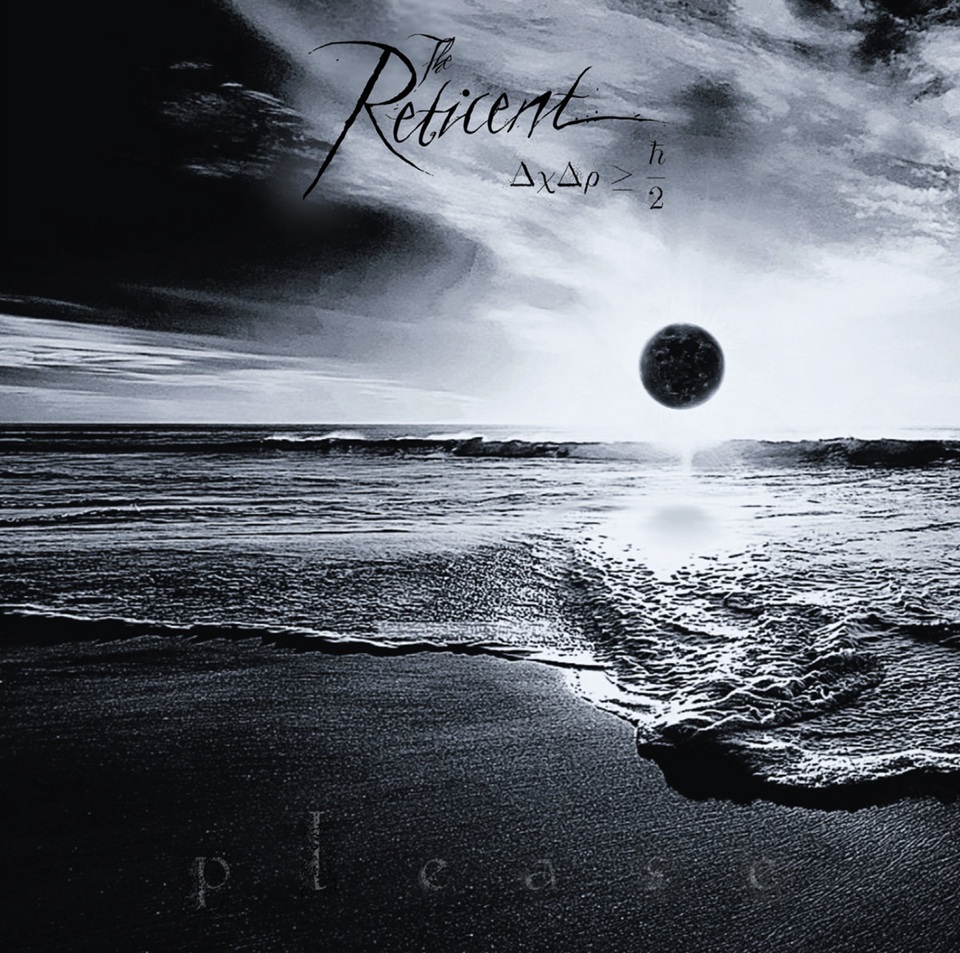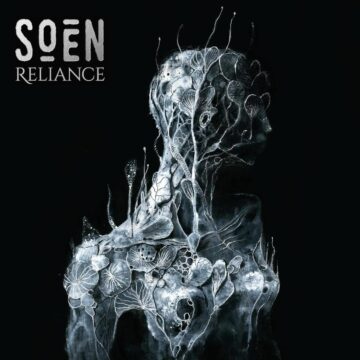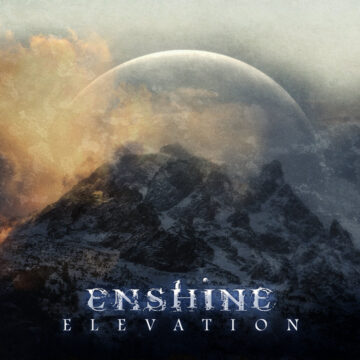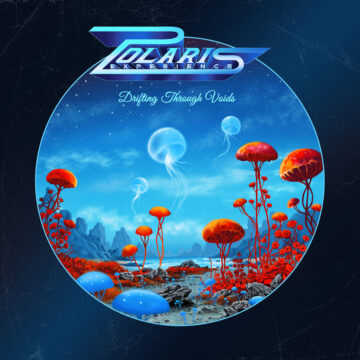Review: The Reticent – please

Style: Progressive metal, death metal, black metal (mixed vocals)
Recommended for fans of: Opeth, Porcupine Tree, early Riverside
Country: USA (North Carolina)
Release date: 13 November 2025
Look, it’s been a rough year for reasons I probably don’t need to outline. At times like these, we could all do with a pick-me-up. So it’s time to: Spin! The! Wheel! What will I be reviewing today? C’mon Moron Police, we need some of that cheer! The wheel’s slowing down aaaaanddd… The Reticent?! Ah fuck.
I jest! But the North Carolinian group are masters of melancholy, their two previous concept albums—On the Eve of a Goodbye and The Oubliette—having explored suicide and dementia respectively. Indeed, The Oubliette is nothing short of a masterpiece, a terrifying and emotional work that took us through the horror of Alzheimer’s via the character Henry, at one point even telling the story from the perspective of the disease as it taunts him. It’s undoubtedly the most upsetting album I’ve ever listened to, near-perfect, but not something I’m able to revisit often because, y’know, it’s a bummer. Will follow-up please be a laugh-a-minute riot to counteract their erstwhile melancholy?
Nope, still depressing! Though as lugubrious as ever, The Reticent take a slightly different conceptual tack with please; rather than recounting a single narrative ala the stories of Eve and Henry on previous albums, please is a prism of mental health struggles, each track exploring a different aspect of mental illness which can lead people to contemplate, and perhaps even attempt, suicide—depression, anxiety, panic attacks, up to the lack of sympathy that others show for such mental health issues. Chris Hathcock, who writes and performs almost everything you’ll hear on this album, draws on his own experiences for another typically raw, and dark entry into the band’s emotional discography.
And please is textbook The Reticent. Hathcock’s rich timbre and plaintive vocal harmonies are as strong and unsettling as ever. The rhythmic interplay has that old Opethian edge but with a particular groove which has come to define the band against their central influence; vituperative moments of blackened blast beats and gnashing harshes, a central position for minimal piano work, and a consistent utilisation of spoken word and samples. Aside from the stanky riffs, off-kilter melodies, and furious lead work that fans have come to expect, The Reticent push out of their comfort zone a little. “The Night River (Those Who Can’t Rest)” features some noodly Phrygian riffing that finds an echo later on in a Mike Oldfield-esque synth motif. “The Scorn (Those Who Don’t Understand)” features a psychedelic break with tribal percussion and a return of the Phrygian scales. “The Riptide (Those Without Hope)”, meanwhile, is a wholly stripped-back track, percussion-less and underwritten by synth melodies, more akin to Porcupine Tree at their most melancholic. Indeed, the double whammy of the two final tracks hits hard, with the outro melody on “The Chance (Those Who Let Go)” proving a clear album highlight.
But I’d be remiss if I didn’t talk about jibber-jabber; please lives and dies by its use of spoken word. This yields some stellar moments: “The Bed of Wasps” features an authoritative male voice announcing ‘you will now hyperventilate, next you’re going to tremble’1 before a sick drop into the album’s heaviest section, as well as a literal bed of wasps buzzing incessantly in the mind of the song’s narrator. Whispering bedevils “The Night River” like anxious thoughts to the insomniac, and “The Riptide” closes with the sounds of seabirds and waves crashing, summoning the image of a cliff-edge, with or perhaps without a person standing on the precipice. There’s a sense of cinema to these additions, an added layer of immediacy and intimacy which proves rather successful.
However, other moments are deadweight. “The Scorn” opens with a sample of a debate between alleged sex trafficker/rapist Andrew Tate and alleged journalist Piers Morgan on the former’s belief that depression doesn’t exist. Of course, this is meant to highlight the stigma still faced by people with mental health issues, but it only serves to distract, as I spend the next five minutes considering the alternative uses of bricks and how we need more of them available on panel discussion shows. The greater issue, however, is that four of the album’s ten tracks—around ten minutes, or a fifth of the runtime—are spoken word interludes on suicide statistics, panic attack symptoms, and depressive episodes. The Reticent have form for this; The Oubliette utilised introductory moments of spoken word for the album’s narrative and ultimately ended with a monologue about the realities of dementia. It was an effective technique, but spoken word is a condiment, not an ingredient, and please contains more than a soupcon. I appreciate that all this is done with the best of intentions, and Hathcock’s determination to never shy away from gut-wrenching realities has always been admirable. But on an artistic level, these interludes interrupt the flow. To put it bluntly, I come to The Reticent for sick riffs and depressing themes, not a series of psychology lectures. Outro spoken word piece “Discharge” features a young woman giving an account of finding her partner’s body, and it’s far more compelling than the other talking heads that appear in the track to recite drier facts. Simply put, The Reticent are at their very best when Hathcock is doing all those things he does so brilliantly, during the interludes, I’m just waiting for him to come back.
As ever, The Reticent come at their subject with their trademark brand of gut-wrenchingly prog death, and while please is as compositionally brilliant as ever, the artistic vision of the album is unfortunately hampered somewhat by a glut of spoken word which interrupts the flow. The diffuse theme, meanwhile, provides strong songs but a somewhat less holistic record, though that’s hardly a criticism. And none of this is to diminish a largely enjoyable (ok, that’s not the right word for these guys, but you get what I mean) and important entry into a superlative discography. The Reticent have another album coming out in 2026, and I’m going to keep playing against the odds and bet on an upbeat, major-key sojourn into the theme of friendship.
Recommended tracks: The Concealment, The Bed of Wasps, The Chance
You may also like: Ubiquity, Descend, Piah Mater
Final verdict: 7.5/10
Related links: Bandcamp | Official Website | Facebook | Instagram
Label: Generation Prog Records
The Reticent is:
– Chris Hathcock (all instruments and vocals)
With guests:
– James Nelson (lead guitar and additional acoustic guitar)
– Brian Kingsland (guest vocals on “The Bed of Wasps”)
– Vienna Gloom (narration)
- And the section is capped off with another spoken word punchline. Indeed, for such a dark topic, “The Bed of Wasps” is a rather playful track, ending with an evil, ironic twist on “row, row, row your boat”, transformed with sneering intent from the calm music box version that plays on “Diagnosis 1”. ↩︎



1 Comment
Review: Dawnwalker - The Between - The Progressive Subway · December 8, 2025 at 03:43
[…] tracks: Perhaps the one-track album?You may also like: Victory Over the Sun, The Reticent, Ashenspire, YakuzaFinal verdict: […]